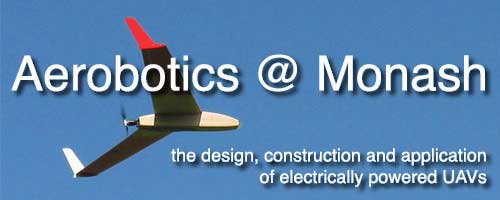
The Use of ARTF Aircraft for Aerobotics Research
May 21, 2006
The Aerobotics Group continues to test its autopilot on a number of
airframes. For many applications including those in primary industry it
is expected that the airframes will need to be regarded as disposable
items given the wear and tear they are likely to receive.
To this end the group has tested the autopilot with a number of
ARTF aircraft an example of which is the robust and inexpensive Multiplex
EasyStar typical of a number of aircraft in this class. The modifications
required were minimal with the autopilot being installed in the cockpit
cover.
Test flights proved uneventful with no aircraft specific tuning
of the autopilot being required. The specific tests conducted were
for the aircraft to return to the launch point at safe altitude on
simulated failsafe.
It is our expectation that most model aircraft will come equipped with
integrated autopilots, including GPS navigation (return to origin), and
spread spectrum communications if only to ensure safe use of
recreational aircraft by unskilled pilots - "litigation mitigation" if
you will.
These features will serve to contain aircraft to designated safe
flying spaces and return them to the vicinity of the pilot should
they for any reason stray out of radio range.
G.K. Egan
Photos: © Professor J. Bird
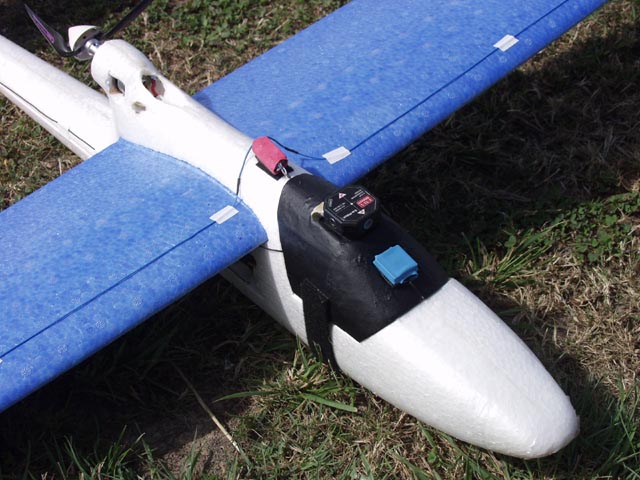
VMC Autopilot (V2) installed entirely within the Easystar's
Canopy
A brushless Hyperion motor was installed for
these tests to give adequate power margin however the standard motor
would give adequate performance as the current autopilot has
an all up mass of 105gm including all sensors and cabling.
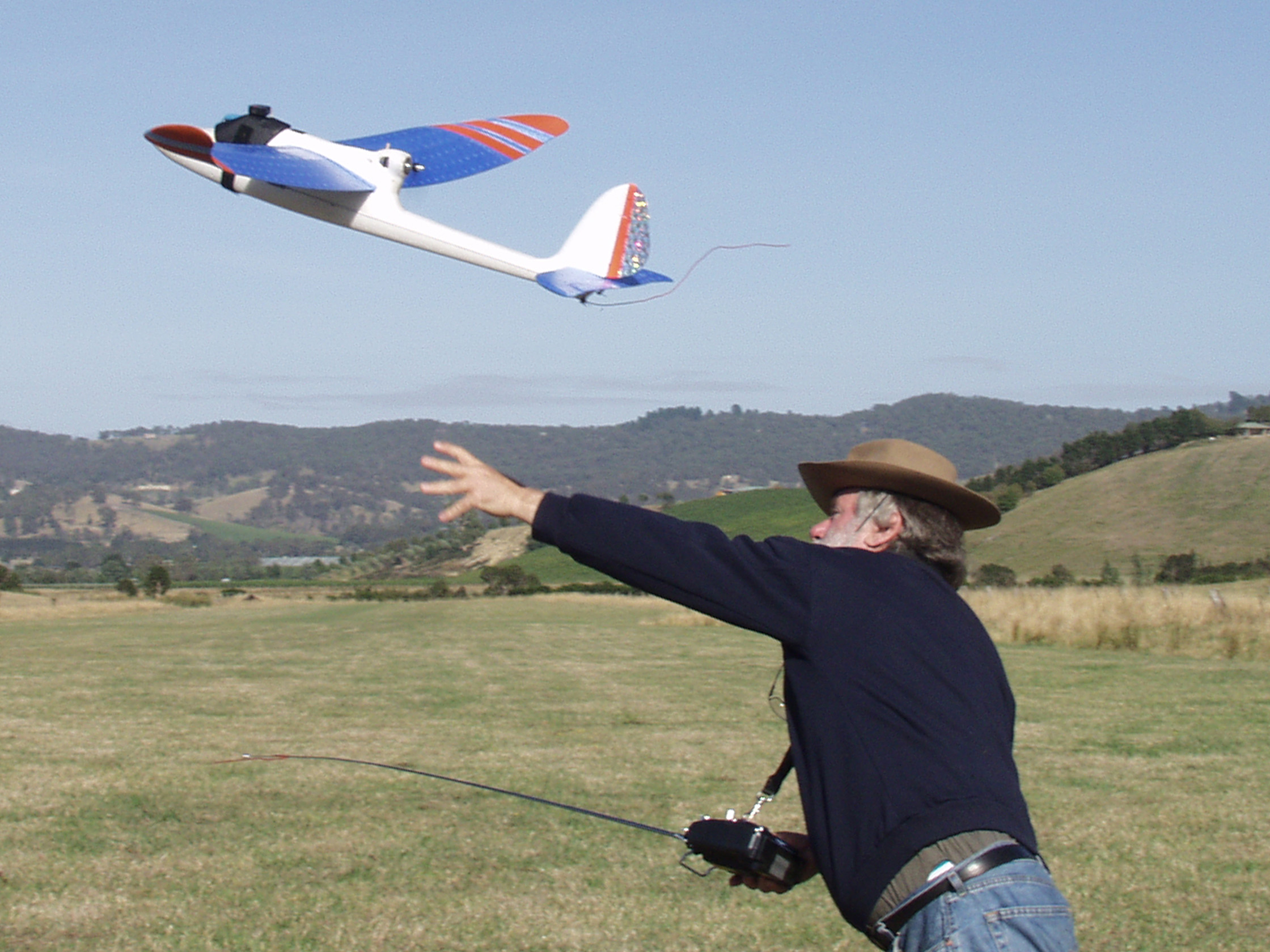
Launching the EasyStar
Aircraft returns to home launch GPS waypoint, hold
altitude at 100', circle waypoint - await further command if the
R/C transmission is acidentally or deliberately lost.
Pilot can switch back to R/C manual mode (pilot-in-command) at all
times. Manual take-off and Landing with 2 other MAAA insured pilot
/observers nearby out of camera shot.
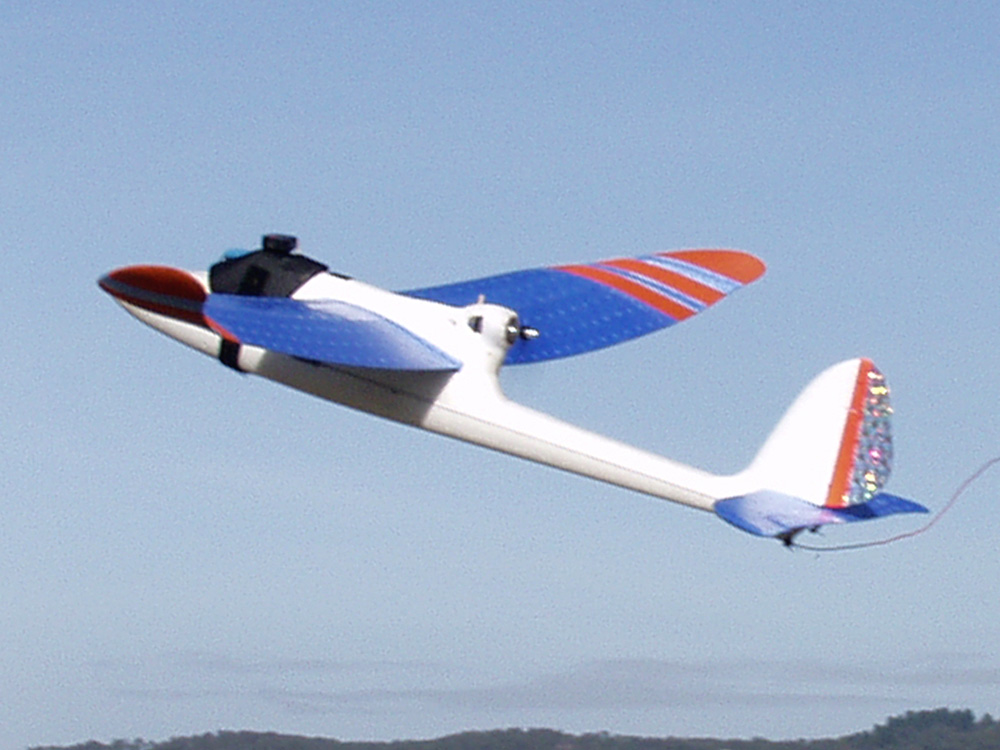
Climbing Out
Hyperion Y22L-2840 Motor with fixed prop 6" X 4";
also Florescent stripes on wings and reflector tape on an extended
rudder "visual aids" to assist pilot and ground observer tracking.
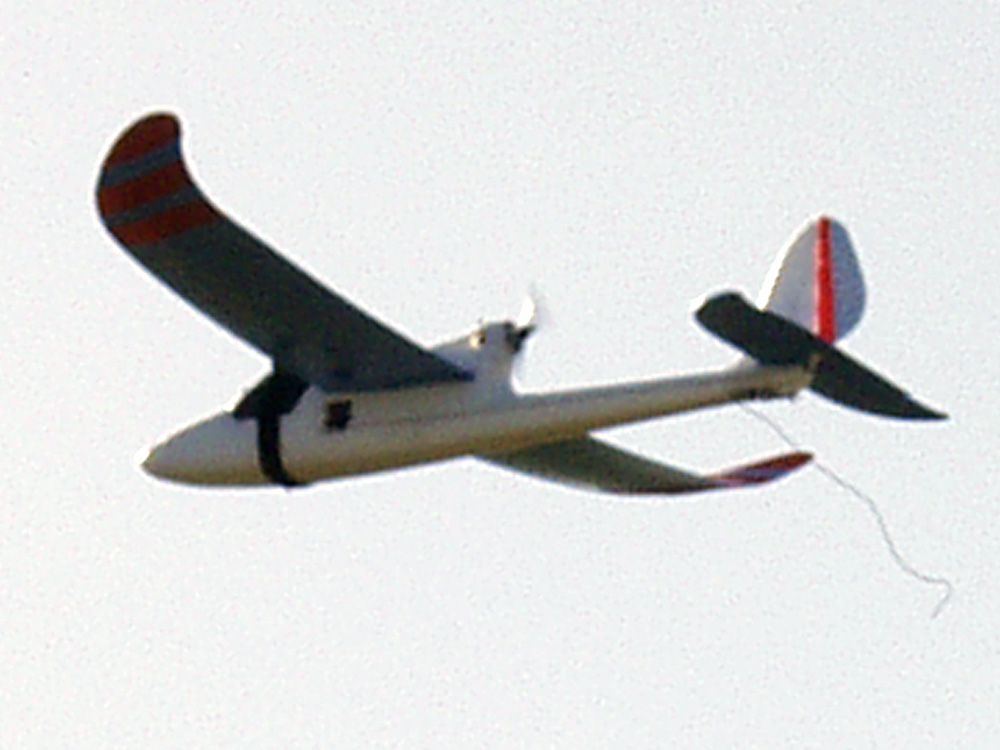
At Altitude - Commencement of Simulated Failsafe
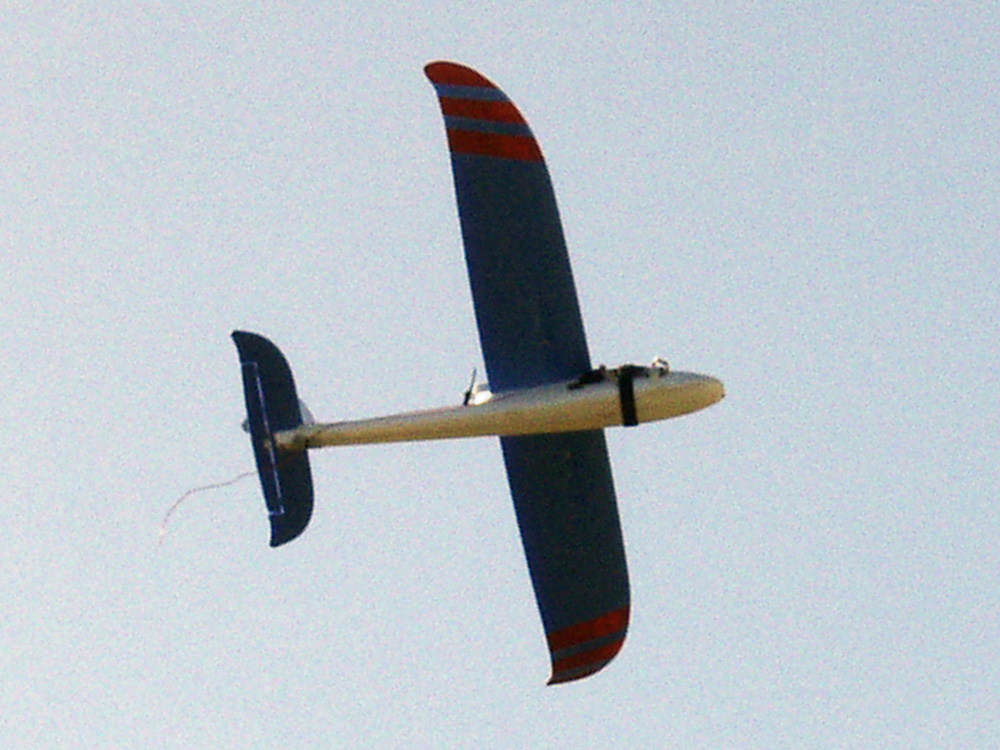
EasyStar circles overhead - waiting for restoration of R/C
link
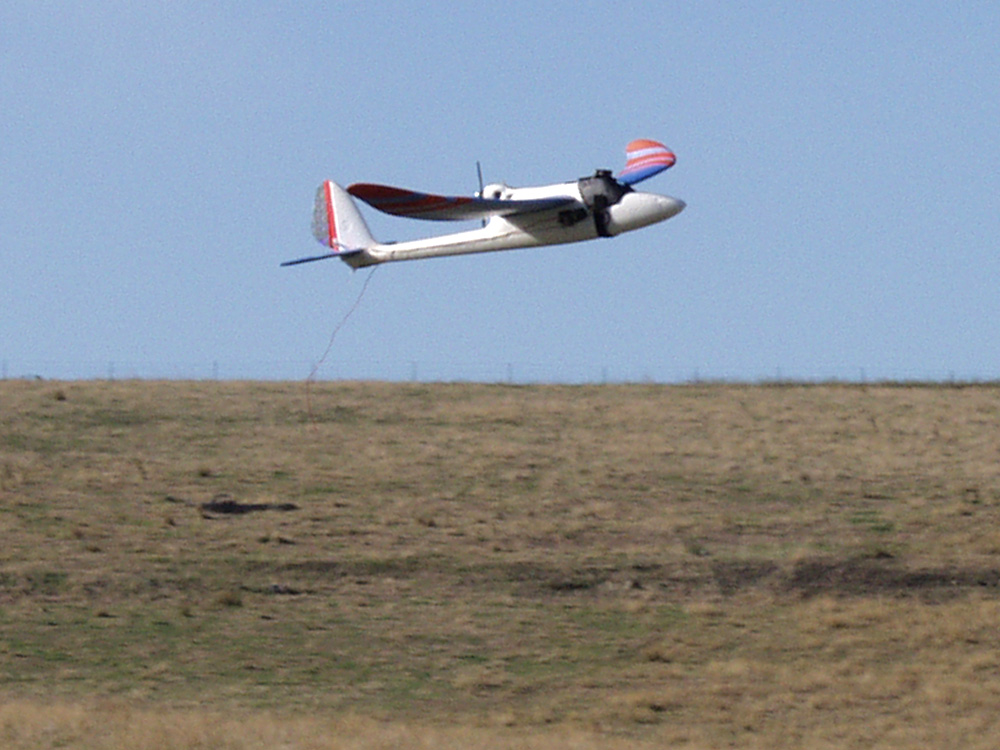
Landing
The term Aerobotics is © Copyright 1999-2007,
CTIE
|
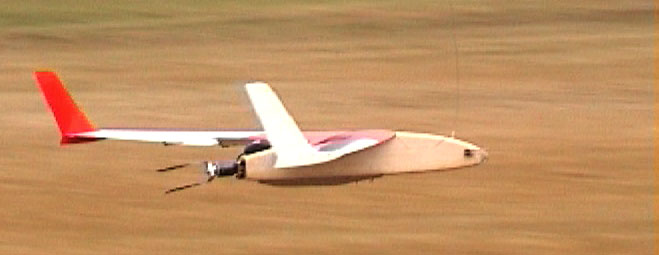 AEROBOTICS ARCHIVE
AEROBOTICS ARCHIVE AEROBOTICS ARCHIVE
AEROBOTICS ARCHIVE